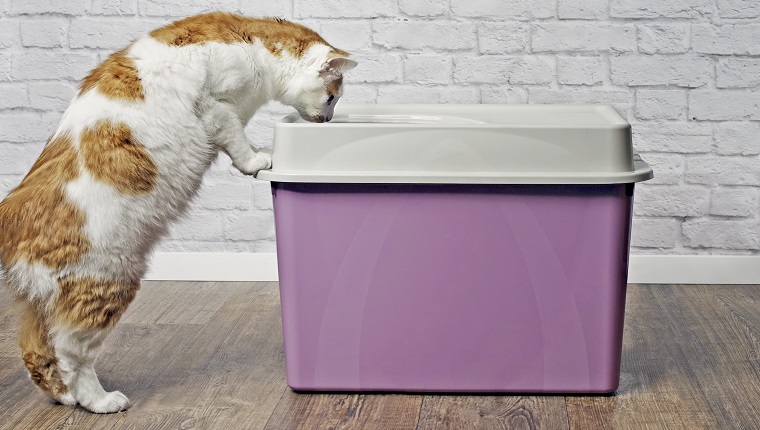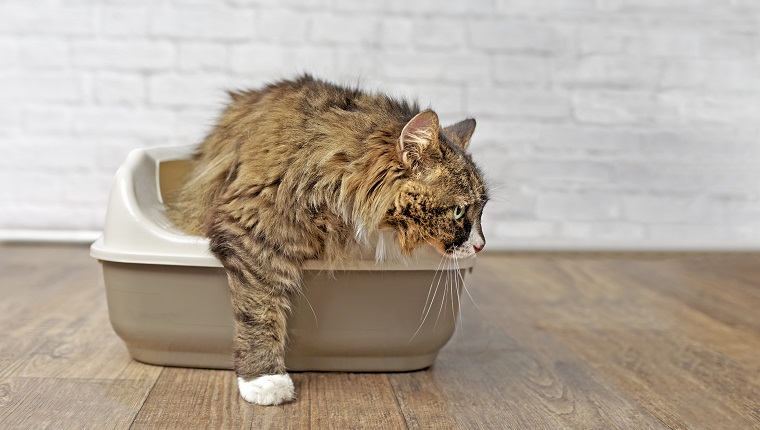Dyschezia in cats is a medical condition that causes a cat to experience difficulties defecating. It can cause blood and mucus to appear in their stools.
The condition is often related to an underlying cause that can involve an inflamed anus or rectum.
If you see signs that your cat might be suffering from difficulties when defecating, then you must consult your veterinarian for a proper diagnosis and advice. Here’s what you should know about the symptoms, causes, and treatments of dyschezia in cats.
Symptoms Of Dyschezia In Cats
Dyschezia in cats can bring on a wide range of symptoms, most of which can appear while your kitty is attempting to defecate and go about their litter box business.
Some of the most commonly seen symptoms include:
- Straining while defecating
- Whimpering while defecating
- Diarrhea
- Blood in the stool
- Not being able to defecate despite repeated attempts
- Mucus present in the stool
- Losing weight
- Less appetite than usual
Causes Of Dyschezia In Cats

The cause of dyschezia in cats often relates to a range of diseases and conditions that affect the anus and rectum.
Some of the most common causes include:
- Inflamed anal sac
- Trauma
- Rectal polyps
- Presence of foreign bodies
- Inflammatory bowel disease
- Fractured pelvis
- Blocked anus, by matted hair or feces
VeterinaryTreatments
If you worry that your cat is suffering from dyschezia, then your veterinarian will want to ask a series of detailed questions about your feline’s medical history along with asking about any relevant symptoms that you might have noticed.
The vet will carry out blood and urine tests. Oftentimes, the use of x-rays and imaging techniques can help to examine the abdominal area to check for any issues that might be causing the condition.
When it comes to treatment, vets may suggest a range of options depending on the suspected cause of the condition. If an infection is involved, a course of antibiotics may be prescribed.
As ever, if your vet prescribes your cat any medicine, it is vital that you stick to the precise dosage and frequency instructions and complete the full course of medication.
Another treatment that vets might use is balloon dilation, which can help to remove a blockage of feces. Vets might also use laxatives if they determine that such medication will help.
Additionally, your vet might recommend certain dietary changes, such as increasing the amount of fiber in your cat’s diet, to help your kitty recover.
Has your cat developed dyschezia? What steps did your vet take to help your cat recover? Tell us all about it in the comments below.









